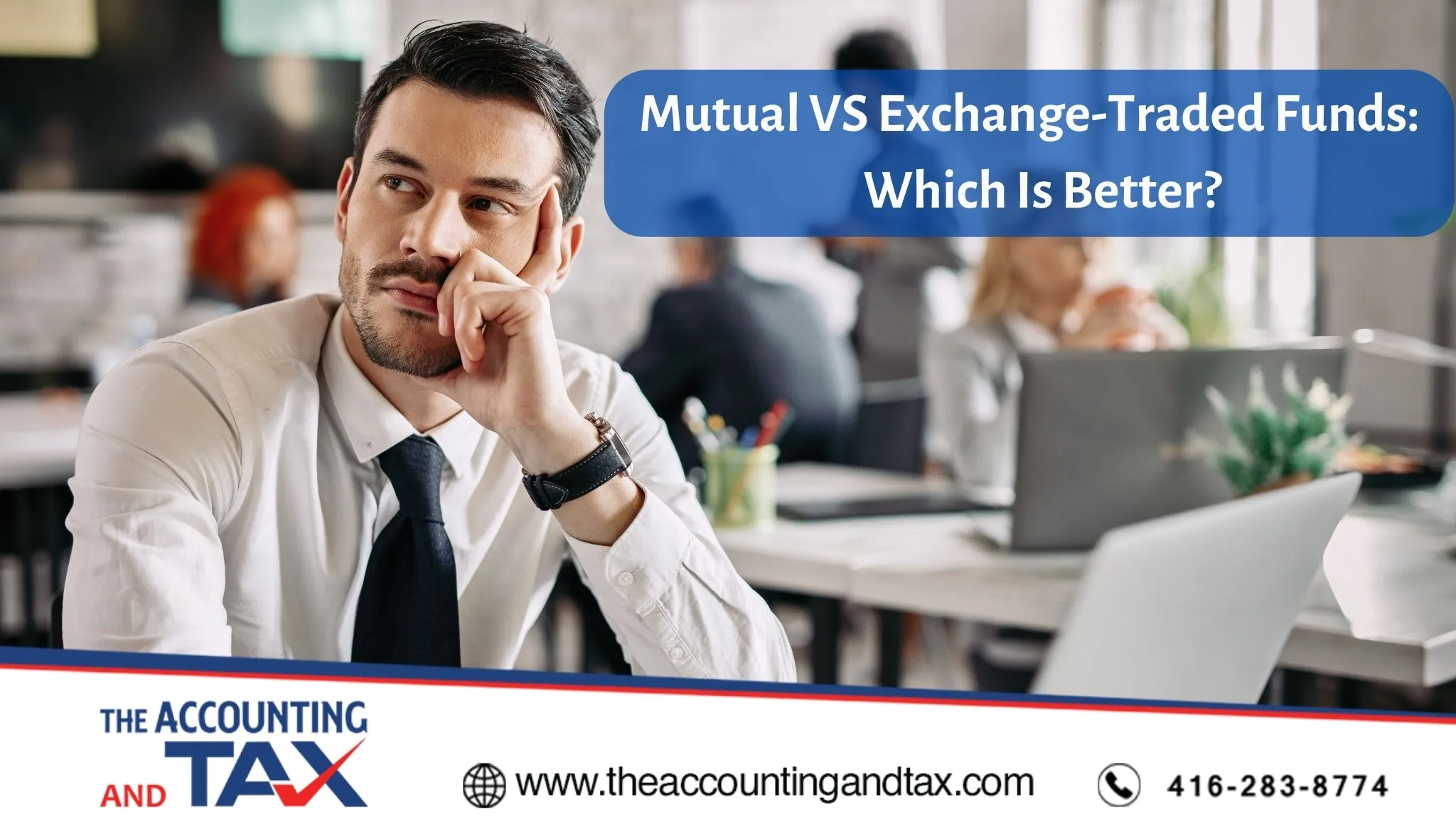
Mutual VS Exchange-Traded Funds: Which Is Better?
Exchange-traded funds (ETFs) and mutual funds share many similar characteristics. Both kinds of funds are a popular method for investors to diversify because they are made up of a variety of different assets. While mutual funds and ETFs have many similarities, they also differ significantly in a few important ways.
It is wise to get in touch with a personal tax consultant in Toronto to understand the basic difference between Mutual vs Exchange-Traded Funds. A thorough interpretation will make you invest and enhance your assets smartly.
What is a Mutual Fund?
Compared to ETFs, mutual funds often have a greater minimum investment requirement. Those minimums can change based on the company and type of fund. For instance, the minimum investment for the Vanguard 500 Index Investor Fund Admiral Shares is $3,000. The minimum investment for American Funds’ The Growth Fund of America is $250.
What is an Exchange-Traded Funds?
For an entry position, ETFs can cost as low as the price of one share plus any applicable fees or commissions. Institutional investors create or redeem ETFs in huge quantities, and the shares of the ETF move between investors throughout the day just like stocks do. ETFs can be sold short just like stocks. These clauses matter a lot to investors and speculators but not much to long-term shareholders.
Mutual vs Exchange-Traded Funds:
Mutual funds are often actively managed, with fund managers actively purchasing and selling securities inside the fund in an effort to outperform the market and generate profits for investors. However, most ETFs are passively managed because they generally mirror a market index or sector sub-index.
- Because active management involves higher operating costs than ETFs, actively managed mutual funds often have higher fees and expense ratios than ETFs.
- The ability to buy and sell ETFs like stocks, as opposed to mutual funds, which can only be done at the close of each trading day, is a significant difference between the two types of investments.
Relationship of Investments with Taxes
Consider a $50,000 redemption from a typical Standard & Poor’s 500 Index (S&P 500) fund as an illustration. The fund must sell $50,000 worth of stock in order to compensate the investor.
As a result, shareholders are responsible for paying the tax on fund turnover. The ETF does not sell any portfolio stocks in response to a $50,000 redemption request from an ETF shareholder. Instead, it provides “in-kind redemptions” to shareholders, which reduces the likelihood of paying capital gains.
The best practice in this regard is to consult a reliable tax consultant in Toronto to have a deeper insight.
To know more click here
